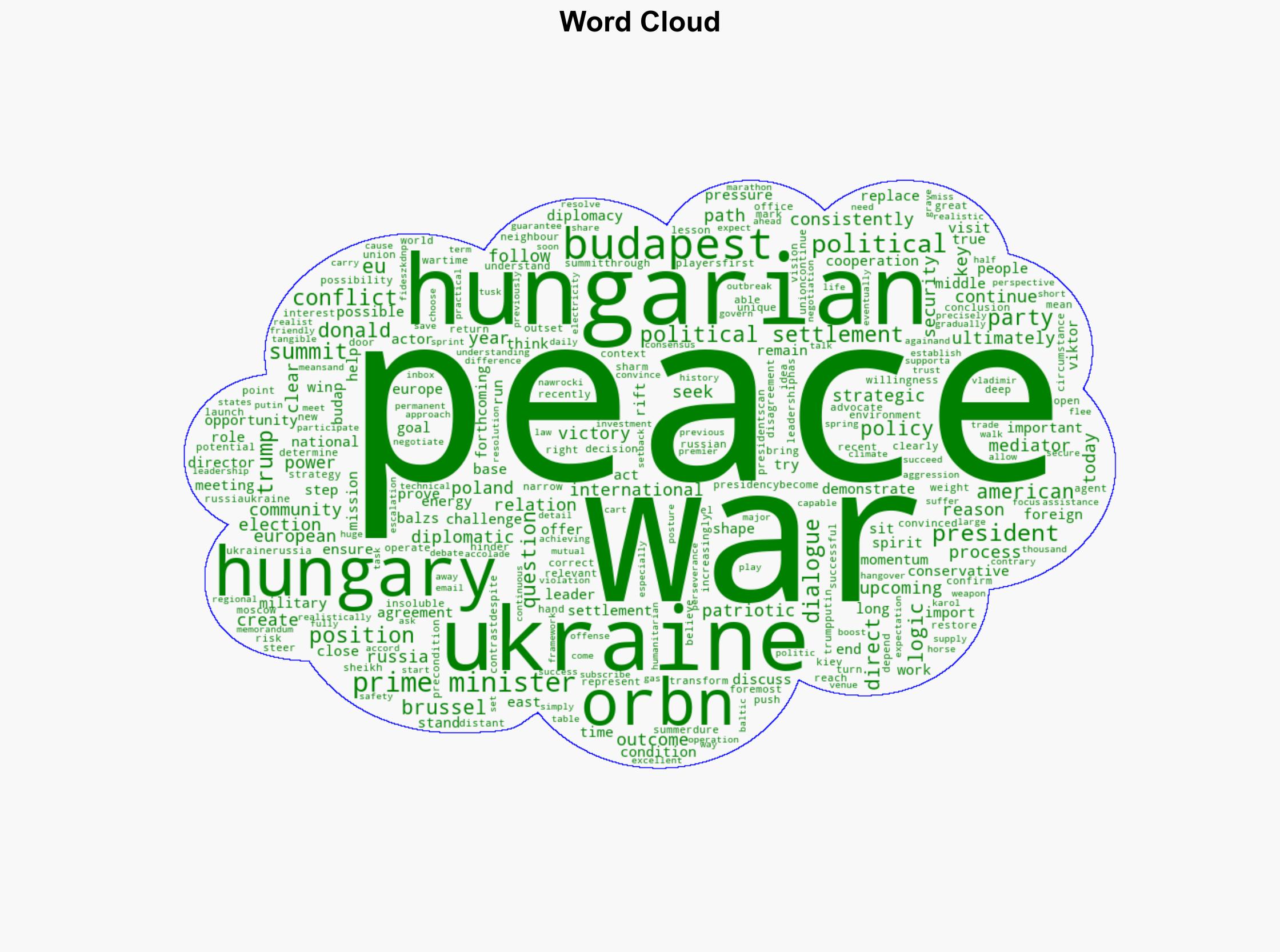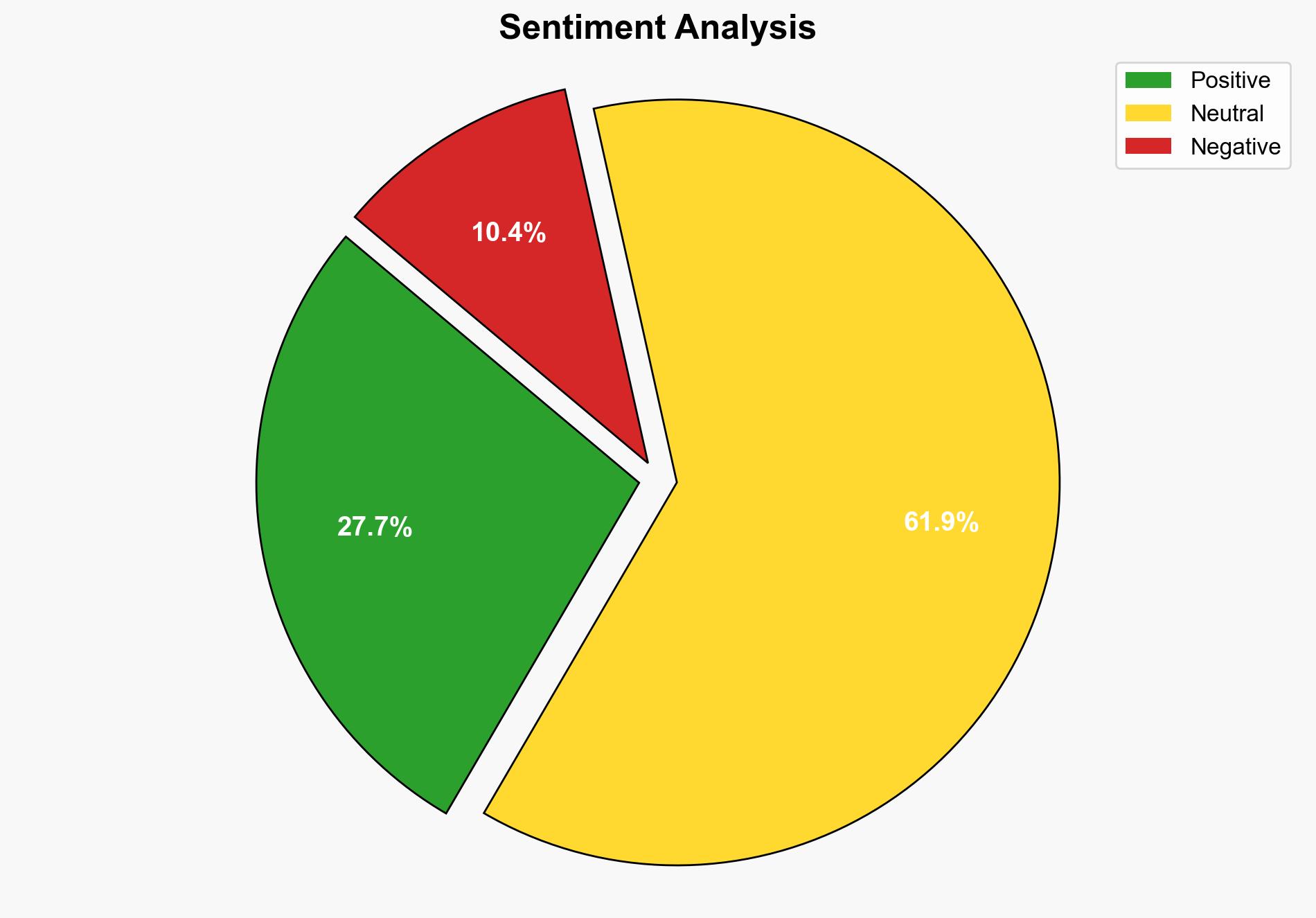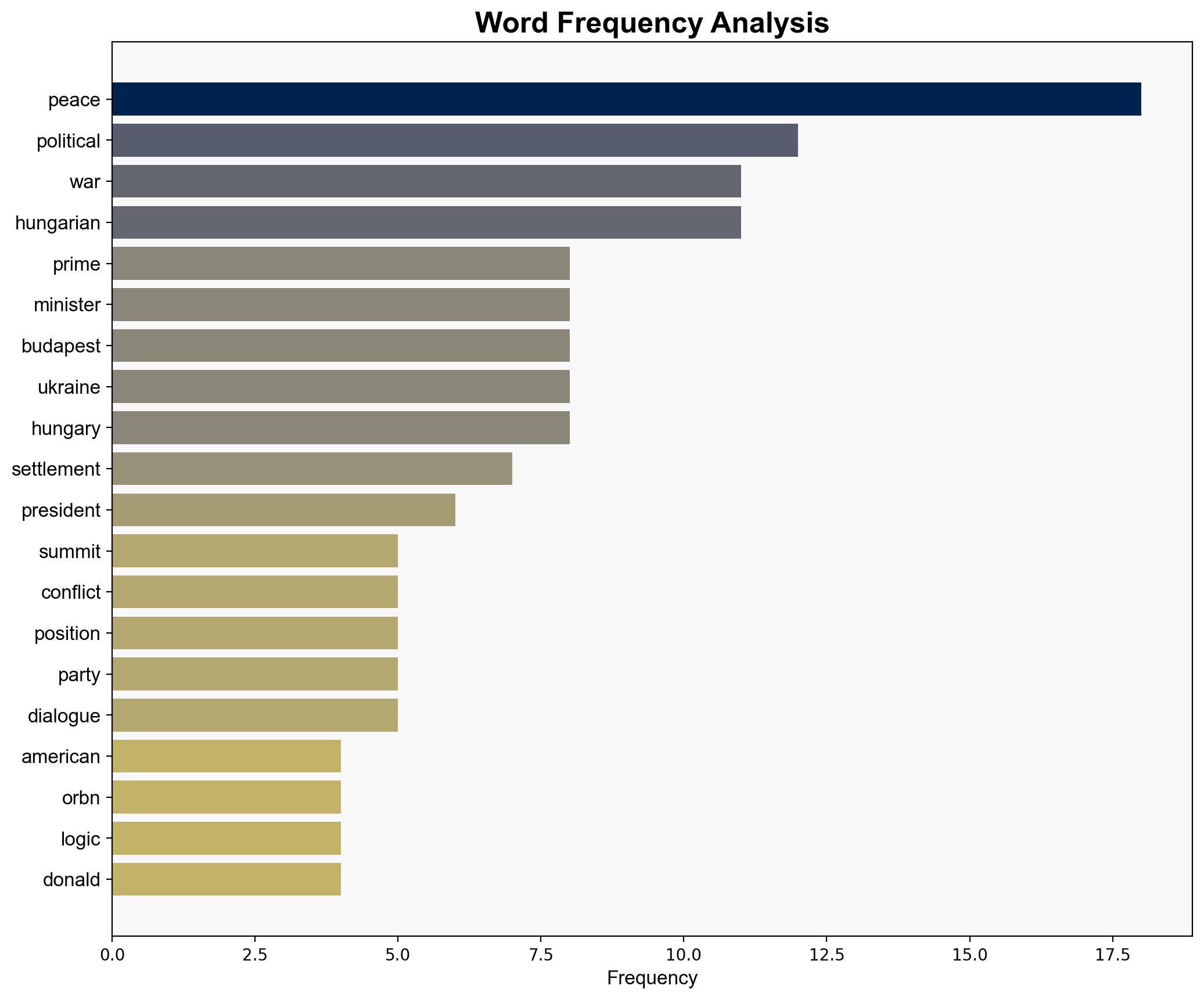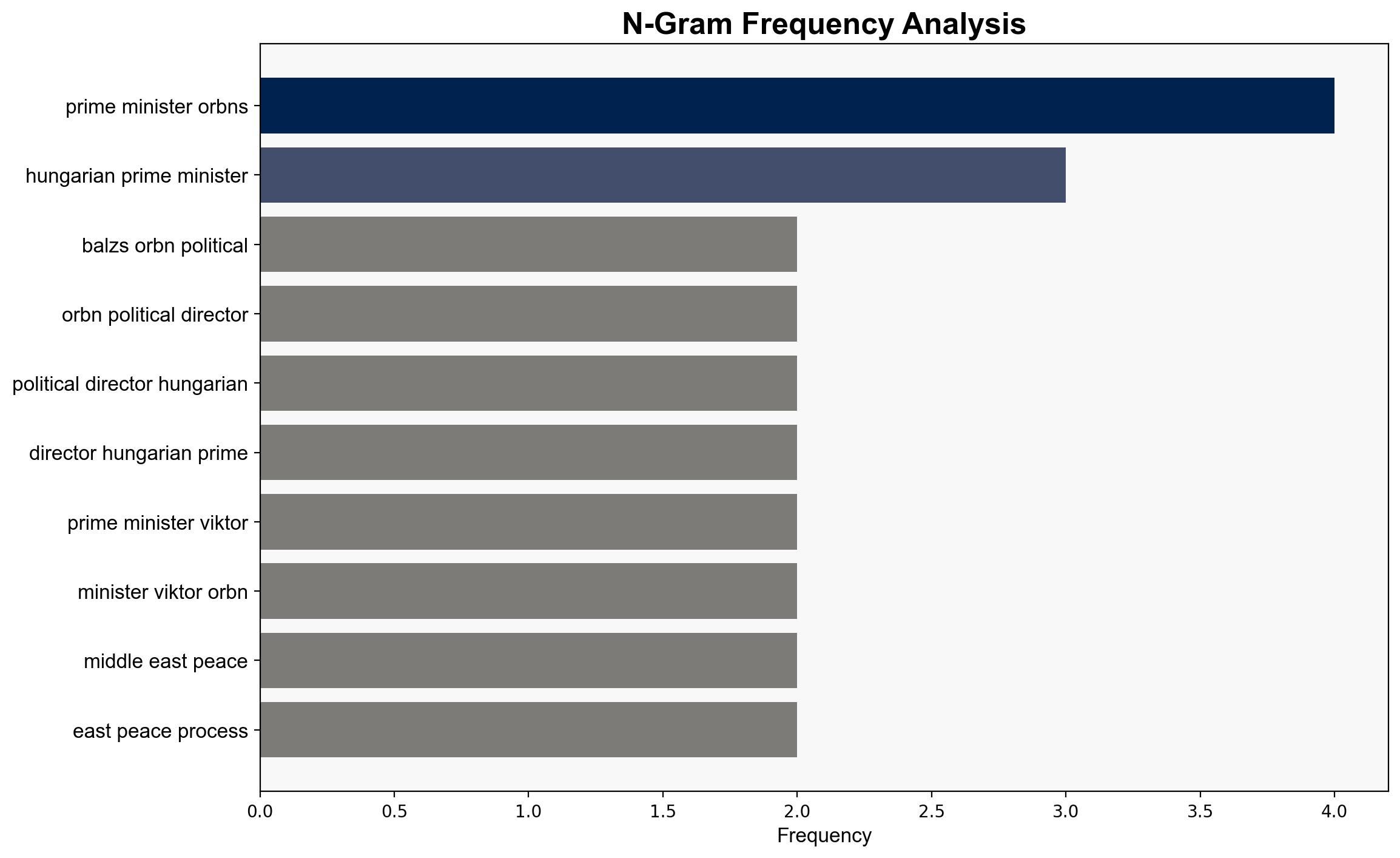The RussiaUkraine War as Seen From Budapest – The American Conservative
Published on: 2025-10-19
Intelligence Report: The Russia-Ukraine War as Seen From Budapest – The American Conservative
1. BLUF (Bottom Line Up Front)
The most supported hypothesis suggests Hungary is strategically positioning itself as a mediator in the Russia-Ukraine conflict, leveraging its unique diplomatic stance and relationships. Confidence level: Moderate. Recommended action: Monitor Hungary’s diplomatic engagements and assess the potential impact on EU cohesion and regional stability.
2. Competing Hypotheses
1. **Hypothesis A**: Hungary is genuinely pursuing a peace settlement in the Russia-Ukraine conflict, aiming to position itself as a key diplomatic player in Europe. This is supported by Hungary’s consistent advocacy for dialogue and its efforts to maintain open communication channels with both Russia and Ukraine.
2. **Hypothesis B**: Hungary’s peace advocacy is primarily a strategic maneuver to enhance its geopolitical influence and counterbalance EU policies, rather than a genuine effort to resolve the conflict. This is suggested by Hungary’s contrasting stance with the EU and its emphasis on national strategic interests.
Using ACH 2.0, Hypothesis A is better supported by Hungary’s historical actions and statements advocating for peace, whereas Hypothesis B is plausible given Hungary’s political disagreements with the EU.
3. Key Assumptions and Red Flags
– **Assumptions**: Hungary’s diplomatic efforts are assumed to be sincere and not influenced by ulterior motives. The EU’s opposition to Hungary’s stance is assumed to be purely strategic rather than ideological.
– **Red Flags**: Hungary’s alignment with Russia could be perceived as undermining EU unity. The potential for Hungary’s actions to be misinterpreted by other EU members or the international community poses a risk.
– **Blind Spots**: The internal political dynamics within Hungary that may influence its foreign policy are not fully explored.
4. Implications and Strategic Risks
– **Geopolitical**: Hungary’s actions could lead to a strategic rift within the EU, affecting regional cooperation and stability.
– **Economic**: Hungary’s energy dependence on Russia may complicate its diplomatic efforts and impact EU energy policies.
– **Psychological**: Hungary’s stance might embolden other EU members with similar views, potentially leading to a shift in EU policy dynamics.
5. Recommendations and Outlook
- Monitor Hungary’s diplomatic engagements closely, particularly any developments in its relations with Russia and Ukraine.
- Engage with EU partners to assess the impact of Hungary’s actions on EU cohesion and policy alignment.
- Scenario Projections:
- **Best Case**: Hungary successfully mediates a peace agreement, enhancing its diplomatic standing and contributing to regional stability.
- **Worst Case**: Hungary’s actions lead to increased tensions within the EU, weakening collective policy responses to the conflict.
- **Most Likely**: Hungary continues to advocate for peace, maintaining its diplomatic position without significant shifts in EU policy.
6. Key Individuals and Entities
– Viktor Orbán
– Balázs Orbán
– Donald Trump
– EU leadership
7. Thematic Tags
national security threats, geopolitical strategy, EU cohesion, regional diplomacy




